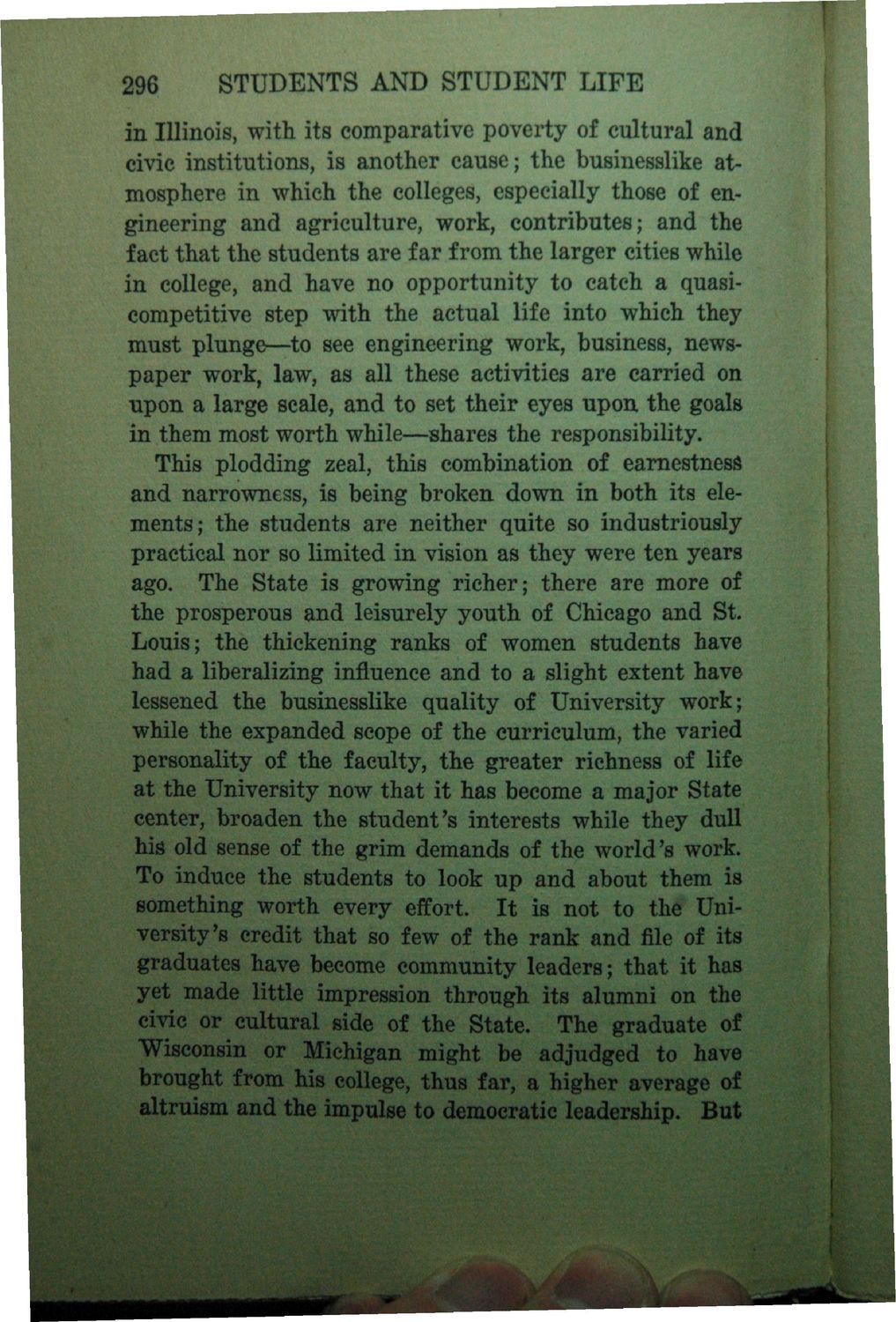| |
| |
Caption: Book - History of the University (Nevins)
This is a reduced-resolution page image for fast online browsing.

EXTRACTED TEXT FROM PAGE:
296 STUDENTS AND STUDENT LIFE in Illinois, with its comparative poverty of cultural and civic institutions, is another cause; the businesslike atmosphere in which the colleges, especially those of engineering and agriculture, work, contributes; and the fact that the students are far from the larger cities while in college, and have no opportunity to catch a quasicompetitive step with the actual life into which they must plunge—to see engineering work, business, newspaper work, law, as all these activities are carried on upon a large scale, and to set their eyes upon the goals in them most worth while—shares the responsibility. This plodding zeal, this combination of earnestness and narrowness, is being broken down in both its elements; the students are neither quite so industriously practical nor so limited in vision as they were ten years ago. The State is growing richer; there are more of the prosperous and leisurely youth of Chicago and St. Louis; the thickening ranks of women students have had a liberalizing influence and to a slight extent have lessened the businesslike quality of University work; while the expanded scope of the curriculum, the varied personality of the faculty, the greater richness of life at the University now that it has become a major State center, broaden the student's interests while they dull his old sense of the grim demands of the world's work. To induce the students to look up and about them is something worth every effort.^ It is not to the* University's credit that so few of the rank and file of its graduates have become community leaders; that it has yet made little impression through its alumni on the civic or cultural side of the State. The graduate of Wisconsin or Michigan might be adjudged to have brought from his college, thus far, a higher average of altruism and the impulse to democratic leadership. But
| |